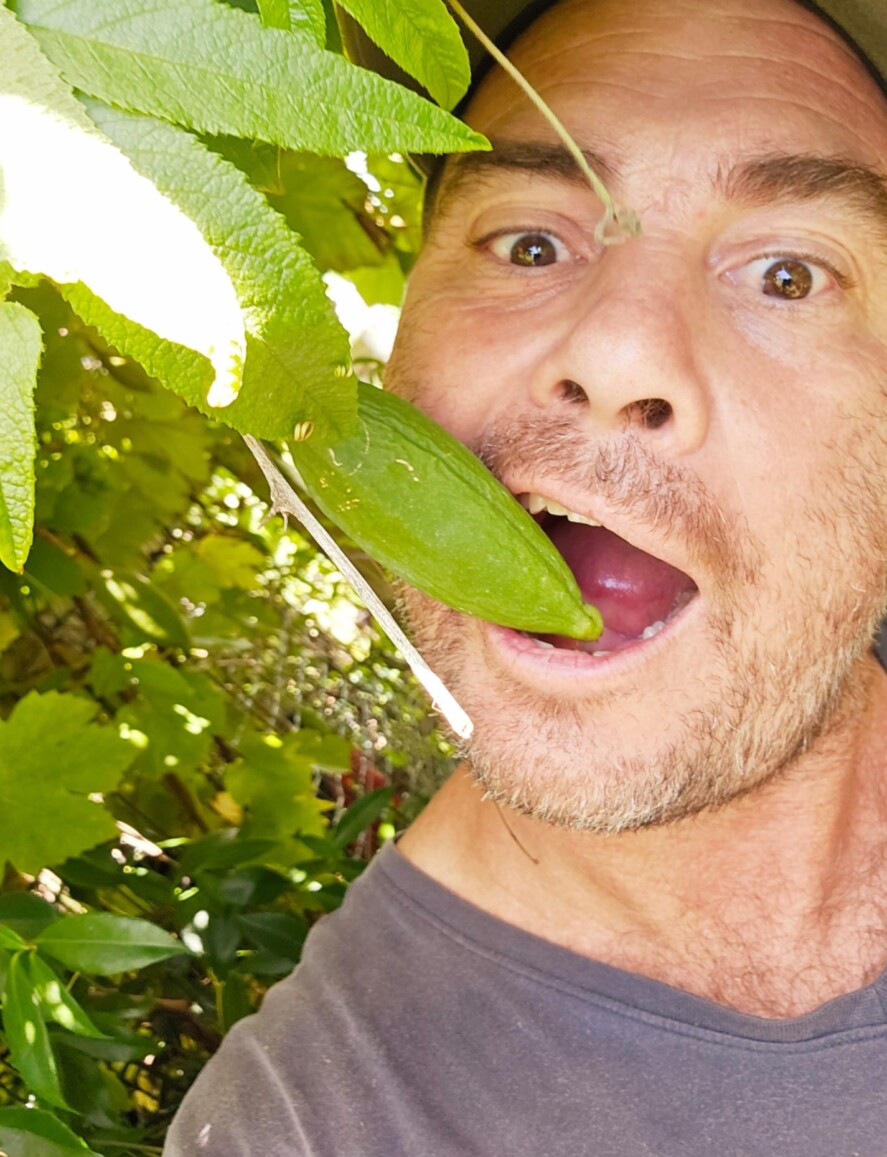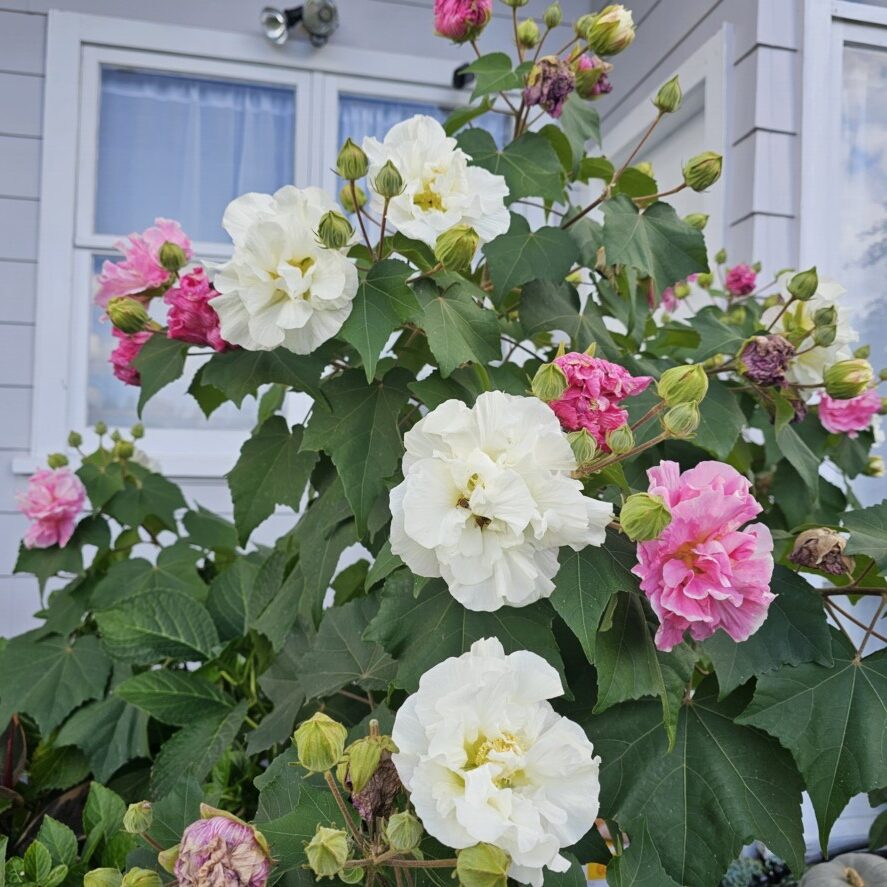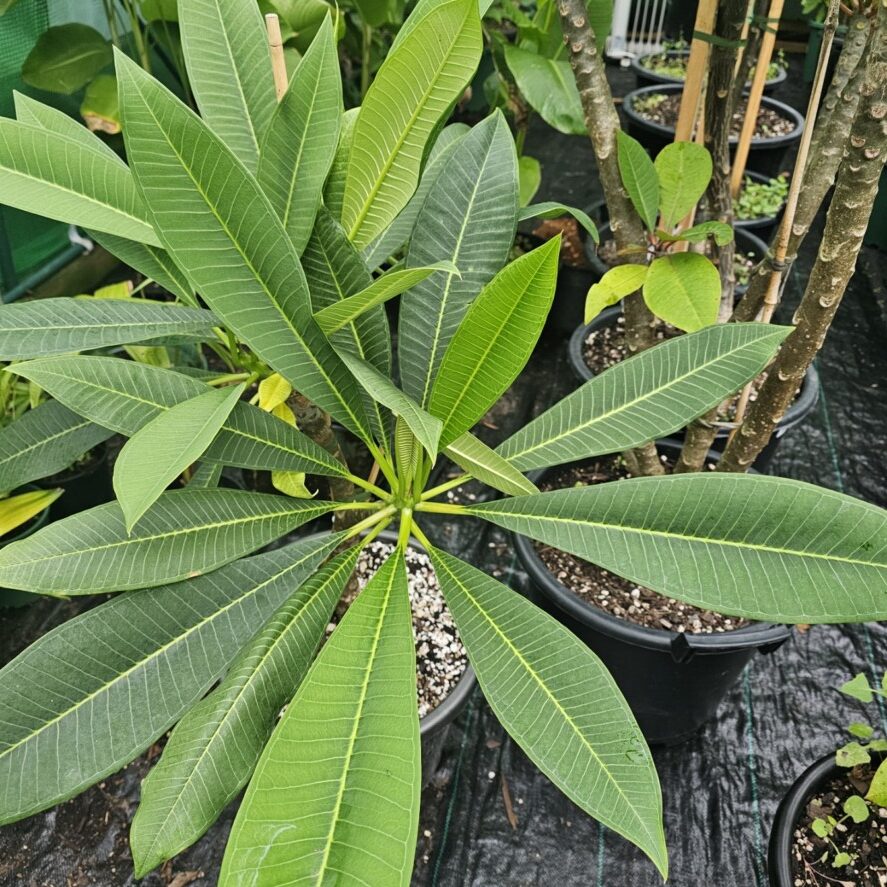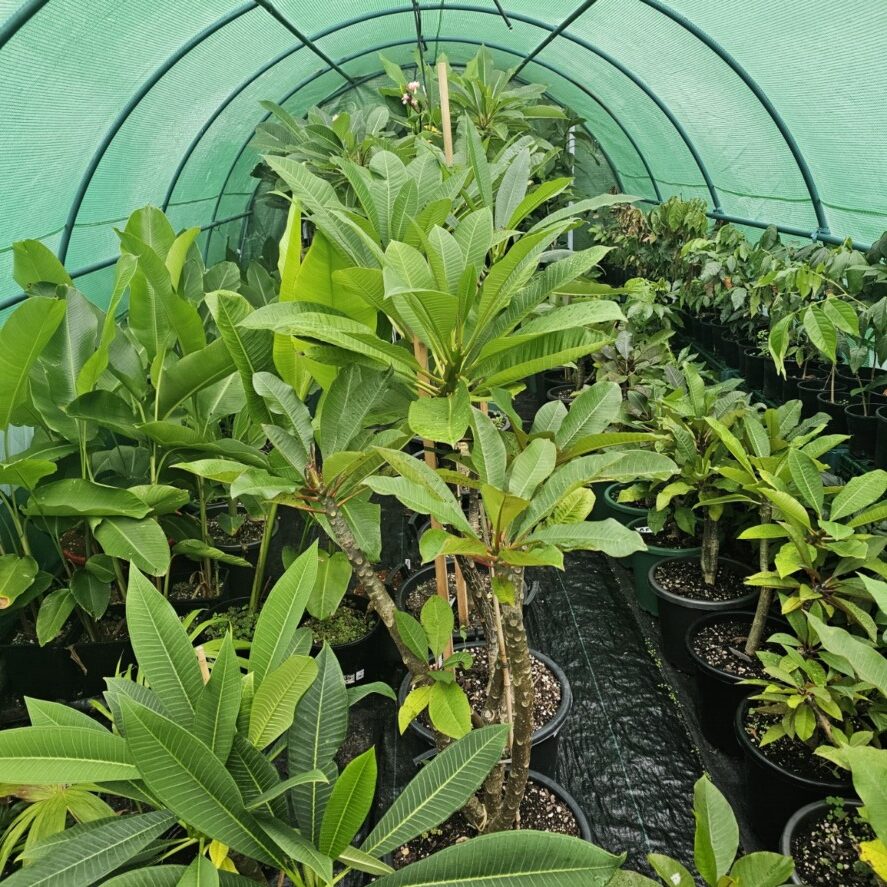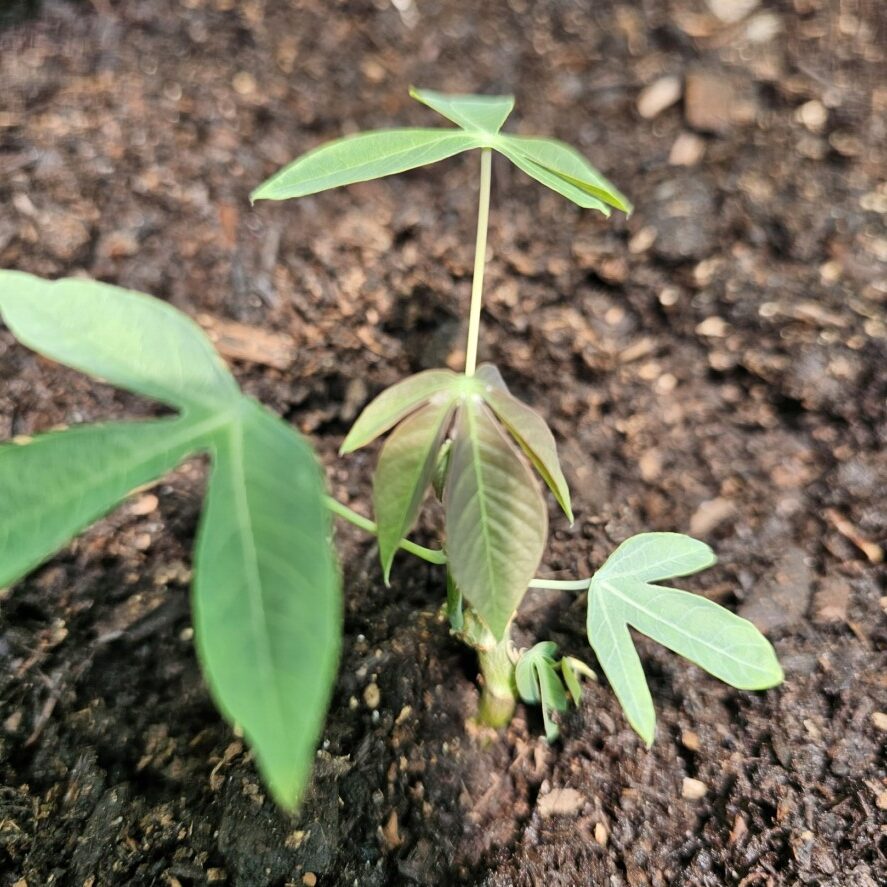-
Initiatives and Collaboration
- Events and Community Engagement
- Crop Swap Te Puke
- Food Resilience School NZ
- Food Forests of New Zealand (www.foodforests.nz)
- Nursery Map - Plant Suppliers of NZ Directory (www.nurserymap.nz)
- Te Puke Community Garden
- Te Puke Digital
- Te Puke Region Food Co-op
- TROPPO’s Food Forest in Te Puke, BOP (wwwfoodforest.org.nz)
- TROPPO's Nursery Directory
- Troppo’s Plant Collection
- Vector Group Charitable Trust (Umbrella)
Cultivating Community: A Report on Establishing a Food Crop Swap in Te Puke
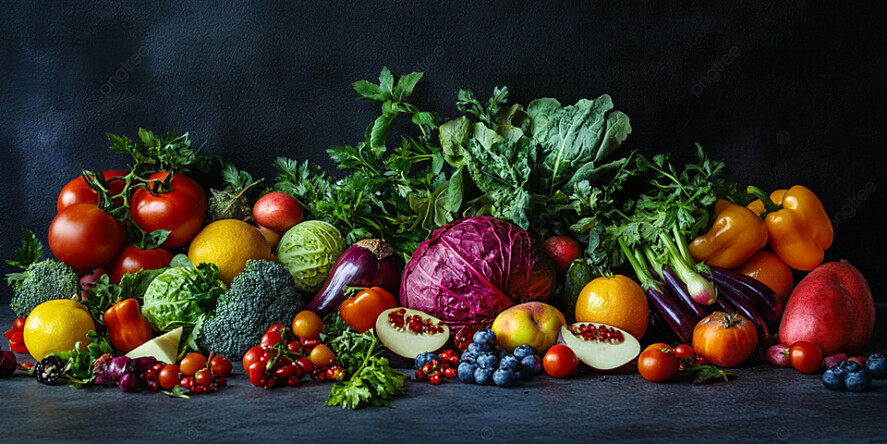
- Introduction: Sowing the Seeds of Community – Discovering Food Crop Swaps in Te Puke
A community food crop swap is a local, recurring gathering where individuals exchange surplus homegrown produce, homemade food items, and gardening resources directly with one another, without the exchange of money.1 These swaps represent a grassroots movement, often initiated and sustained by community members who are passionate about sharing their bounty and fostering local connections.1 The underlying principle is one of mutual benefit and resourcefulness, where an individual’s excess can meet another’s need, strengthening the social fabric of the neighborhood.2 The items exchanged can extend beyond the typical fruits and vegetables harvested from gardens to include a diverse array of goods such as fragrant herbs, fresh eggs, saved seeds, young seedlings, homemade preserves like jams and pickles, and even baked goods crafted in home kitchens.1 In some instances, the exchange can even encompass gardening tips, advice, or the sharing of skills related to food cultivation and preparation.2 The fundamental idea is to share with generosity and take with mindfulness, creating a system of exchange that values community interaction over financial transactions.3
Establishing a food crop swap in Te Puke presents a unique opportunity to cultivate a more resilient and interconnected local food system. By providing a platform for the exchange of homegrown and homemade goods, the initiative can foster a stronger sense of community among residents. Te Puke, with its well-established agricultural heritage, likely has a significant number of residents who actively engage in gardening and may experience seasonal gluts of various fruits, vegetables, and herbs. A food crop swap would serve as an ideal mechanism for these individuals to share their surplus with others in the community who may have different gardening yields or specific needs. Furthermore, participation in a local food crop swap can offer numerous advantages to Te Puke residents, including access to a wider variety of fresh, locally sourced, and potentially organically grown food, the opportunity to realize cost savings on their household grocery expenses, and a chance to connect with neighbors who share similar interests in gardening, cooking, and sustainable living. Given Te Puke’s identity as the “Kiwifruit Capital,” a local food crop swap could naturally emphasize the exchange of seasonal fruits and vegetables that are particularly relevant to the region’s distinct growing cycles.19 This could create a unique draw for residents and celebrate the agricultural abundance of the area.
- The Roots of Sharing – Understanding the Benefits of Food Crop Swaps
Participation in a community food crop swap offers a multitude of benefits, both for the individual and for the wider community of Te Puke. For individuals, these swaps provide direct access to an array of fresh, locally grown produce, often surpassing the freshness and flavor found in supermarket offerings.2 Because the food is sourced directly from local gardens, it spends less time in transit, allowing it to be harvested closer to its peak ripeness, thus retaining more nutrients and flavor.20 Engaging in food crop swaps can also lead to significant cost savings on groceries. By exchanging surplus items for other needed foods, participants can reduce their reliance on purchasing these items from stores. The experience of Laurie Green’s family, who saved a substantial amount annually through crop swapping, illustrates this potential for economic benefit.15 Beyond the familiar produce, swaps often introduce individuals to new and diverse types of food, along with creative ideas for their use through recipe sharing and conversations with other swappers.2
Beyond the tangible benefits of fresh food and cost savings, food crop swaps are fundamentally about community connection. They create regular opportunities for neighbors to meet, interact, and build relationships based on shared interests in food and gardening.2 Many participants value the social interaction as a significant part of the experience.30 These gatherings also serve as informal learning hubs where individuals can exchange gardening knowledge, share tips for successful growing, and troubleshoot common gardening challenges.2 A crucial benefit of food crop swaps is their contribution to reducing food waste. By providing an outlet for surplus homegrown produce and homemade goods, these events prevent perfectly edible food from being discarded 2, addressing a significant global issue.70 Finally, by prioritizing locally grown and homemade items, food crop swaps inherently support more sustainable food practices and contribute to reducing the carbon footprint associated with long-distance food transportation.2
For the broader Te Puke community, a food crop swap can contribute to a more robust local food system by fostering direct connections between those who grow food and those who consume it.21 This strengthens the local economy and supports the invaluable knowledge of local farming practices.71 By increasing access to fresh, nutritious food, these swaps can also enhance food security within the community.31 The social networks and sense of community fostered by regular swaps contribute to overall community resilience, enabling residents to better support each other.18 While the exchanges are non-monetary, they can indirectly benefit the local economy by supporting home gardeners and potentially inspiring related small-scale enterprises.22 Moreover, the emphasis on local food significantly reduces the environmental impact associated with transporting food over long distances.2 The establishment of a food crop swap in Te Puke aligns with the broader goals of the “Mana Kai Mana Ora Western Bay Kai Resilience project,” which aims to ensure that the wider community has access to healthy, culturally appropriate, and affordable food, thereby contributing to regional food security and sustainability.81
III. Global Harvests – Exploring Successful Food Crop Swap Models Worldwide
Community food crop swaps have flourished across the globe, demonstrating their adaptability and appeal in various contexts. In urban environments, initiatives like Crop Swap LA in Los Angeles have successfully addressed food insecurity by transforming underused spaces into productive microfarms and facilitating crop exchanges among urban gardeners.9 Berkeley’s local crop swaps exemplify the hyper-local nature of these events, where neighbors exchange produce and recipes, fostering a strong sense of community.6 The rise of technology has also led to the development of online platforms, such as the Massachusetts Food Trader and the Portland Food Exchange, which enable virtual bartering alongside traditional in-person swaps.18 These examples highlight the diverse ways in which communities are embracing food sharing.
The Food Swap Network stands as a testament to the global reach and popularity of this movement, providing resources and connecting food swap organizers and participants across the United States, Canada, and Europe.12 This network underscores the fundamental elements of food swaps, which typically involve no money exchange, require participants to bring homemade or homegrown items, and aim to increase access to diverse, locally sourced food while building community.15
New Zealand has a thriving food crop swap culture, with Taranaki serving as a particularly active region. Crop Swap Taranaki, initiated in 2014, has expanded significantly, embodying the values of generosity and community connection.3 The Waitoriki and Inglewood Crop Swap in Taranaki demonstrates how these monthly gatherings create social opportunities for interaction across different age groups, with participants exchanging a wide variety of produce and garden-related resources.3 Other successful examples across New Zealand include the Palmy Crop Swap in Palmerston North, RECAP Crop Swap in Ashhurst, and the Foxton Crop Swap, all operating on a monthly basis to facilitate the sharing of surplus garden produce.93 The Kapiti Crop Swap encourages sharing and cultivating connections, with multiple swap locations operating throughout the district.38 Even smaller communities like Cromwell in Central Otago have embraced crop swaps as a way to bring people together through food and build self-sufficient, resilient communities.37 The Ohaupo Crop Swap further illustrates the ease with which these initiatives can be started and sustained within local neighborhoods.39 These examples highlight the strong tradition of community-led food sharing in New Zealand.
Within the Bay of Plenty region, several food swap initiatives are already making a positive impact. Tauranga hosts a monthly Crop Swap at the Envirohub Bay of Plenty, providing an opportunity for the community to exchange excess produce and homemade goods.12 Katikati features the Grow On Katikati Crop Swap and Food Fiesta, a monthly event that combines produce swapping with opportunities to learn about seeds and purchase local goods.102 In Papamoa, a community food stall operates on an honesty basis, allowing residents to donate and take fresh produce, demonstrating a local desire for food sharing.96 Furthermore, there has been consideration of establishing a free produce swapping space at the Te Puke Night Markets 106, indicating a recognized potential for such an initiative within the Te Puke community. The existence of these established food swap initiatives in the Bay of Plenty suggests a foundation of community interest and experience that can support the launch and growth of a food crop swap specifically for the Te Puke region.
Australia also boasts a robust network of food crop swaps, with Crop Swap Australia facilitating numerous local, cashless markets for homegrown produce, seeds, and edible plants.2 These groups emphasize community building, reducing food waste, and helping people eat better at a lower cost.66 Examples include the Blue Mountains Crop Swap in New South Wales 10, various crop swaps in Sydney 10, community gardens with food swaps in the Illawarra region 7, and numerous food swaps in Melbourne 2, including the Fitzroy Urban Harvest.41 Even smaller communities like Singleton host monthly crop swaps at their public library.110 These Australian food swaps typically involve a wide range of items beyond just produce, such as seeds, seedlings, honey, eggs, and homemade preserves.2 A key feature of these swaps is the strong emphasis on the social aspect and the exchange of gardening knowledge and tips among participants.2 The success of Crop Swap Australia demonstrates the potential for a nationally recognized network to support local community-driven initiatives.
- Cultivating Connections – Best Practices for Engaging and Inviting Food Crop Swaps
Creating a food crop swap that is both fun and inviting requires careful consideration of the atmosphere and the needs of potential participants in Te Puke. Selecting an easily accessible and welcoming location is paramount for attracting a diverse range of community members.7 Spaces such as community centers, local parks, or even a designated area within an existing community event in Te Puke could serve as ideal venues. Fostering a friendly and informal setting will help newcomers feel comfortable and encourage regular attendance.2 Providing name tags can be a simple yet effective way to facilitate introductions and encourage interaction among swappers.12 Offering light refreshments, such as tea or coffee, can also contribute to a relaxed and welcoming atmosphere, encouraging people to linger and connect.12
Establishing clear and straightforward guidelines for the food crop swap is crucial for ensuring a positive experience for all participants.2 These guidelines should be communicated effectively through the website page, social media, and potentially through signage at the swap location.7 It is important to clearly outline the types of items that are welcome at the swap, which typically include homegrown produce, homemade food items, seeds, seedlings, and gardening-related resources.2
To make the swapping process easy and fair, consider setting up designated tables or areas where participants can display their items.2 An informal sharing system, where people are encouraged to take what they need while adhering to the principle of “give with generosity, take mindfully,” might be the most welcoming approach for a community like Te Puke.2 For larger gatherings, a system using playing cards to determine who gets to choose items first can help ensure a fair and calm process.5 Having a dedicated coordinator or “swap guardian” can be beneficial for managing the flow of the event and answering any questions.3 It’s also important to establish a plan for any leftover produce, such as donating it to a local food bank like Good Neighbour, further emphasizing the community benefit of the swap.39 Given the Te Puke Night Markets’ experience in hosting community events, exploring a potential collaboration could provide an established structure and venue for the food crop swap.106
- Growing Together – Fostering Collaboration and Sharing within Food Crop Swaps
To foster a strong sense of community and encourage collaboration within the Te Puke food crop swap, it is essential to create opportunities for interaction and knowledge exchange among participants. Designating a specific time at the beginning of each swap for attendees to mingle, admire the variety of items brought, and engage in conversation can help build connections.3 Actively encouraging participants to share their favorite recipes, gardening tips, and the stories behind their homegrown or homemade contributions can further enhance the sense of community and shared learning.2 To further facilitate this exchange, consider setting up a dedicated “tip sharing” board where individuals can write down their gardening advice, recipe ideas, or other helpful information for others to browse. By creating a welcoming and supportive environment, the Te Puke food crop swap can become a valuable hub for both sharing food and cultivating local knowledge related to gardening and cooking.
Introducing themed swaps and activities can add an extra layer of engagement and fun to the Te Puke food crop swap. Consider hosting occasional themed events that focus on specific seasonal produce (e.g., a “Berry Bonanza” during berry season) or particular types of items (e.g., a “Preserving Palooza” dedicated to jams, pickles, and chutneys).35 These themes can spark culinary creativity and attract a diverse range of offerings.33 Another way to foster collaboration and learning is to incorporate mini-workshops or demonstrations into the swap events. These could cover topics such as basic seed saving techniques to encourage the preservation of local varieties, effective composting methods for healthier gardens, or simple demonstrations of preserving techniques for seasonal gluts.3
To further strengthen the Te Puke food crop swap and expand its impact, exploring collaborations with local organizations would be highly beneficial. Partnering with established groups such as the Te Puke Community Garden, which already serves as a hub for local gardening activities 127, or The Hub Te Puke, a welcoming community space 82, could provide access to existing infrastructure, expertise, and community networks. Collaborating with local food banks like Good Neighbour Tauranga could also create a system for donating any surplus produce from the swaps, ensuring that it reaches those in need within the community.94 These partnerships can help to build a more connected and resilient local food ecosystem in Te Puke.
- From Seed to Swap – A Practical Guide to Starting a Food Crop Swap in Te Puke
Launching a successful food crop swap in Te Puke requires a few key steps. First, identify a small group of enthusiastic individuals who are willing to take on the initial organizational tasks.7 Together, determine the specific goals and the preferred format for the swap. Choosing a regular meeting time and a suitable location within Te Puke is essential for building consistency and attracting regular participants.7 Potential locations to explore include local community centers, public parks, or perhaps a designated space at the Te Puke War Memorial Hall.106 Investigating partnerships with existing Te Puke initiatives like the Community Garden or The Daily Cafe could provide access to established venues and help reach a wider audience.19
Once the foundational elements are in place, the next step is to spread the word about the Te Puke Food Crop Swap. Utilize local social media platforms, such as the Te Puke Online Facebook page, community notice boards in libraries and shops, and personal networks to announce the swap.7 Creating simple flyers or posters with key information (what, when, where) and distributing them throughout the Te Puke area can also be effective.7 Consider reaching out to local media outlets like the Te Puke Times to generate awareness and interest in the initiative.16
When running the swap, ensure a welcoming space with tables for participants to display their items.2 Having a simple sign-in process can help track participation.3 Facilitate the exchange by allowing time for browsing and encouraging participants to share what they have brought.2 Consider having a designated coordinator or “swap guardian” to help guide the process.3 It is also important to have a plan for any leftover produce, such as arranging a donation to the Good Neighbour food rescue service.39
To ensure the safety of all participants, emphasize the importance of bringing fresh and clean items that are suitable for sharing.5 Encourage swappers to label their items clearly, especially noting the ingredients and any potential allergens.5 It may also be prudent to include a general disclaimer stating that the food items are homemade/grown and not from commercial kitchens.13 To promote sustainability, encourage participants to bring their own reusable bags and containers for taking home their swapped items.51 Additionally, highlight the opportunity to share gardening resources like seeds and seedlings, further promoting local food production.2
VII. Nourishing Te Puke – Crafting an Informative and Engaging Website Page
- Page Title: Te Puke Food Crop Swap – Share the Harvest, Grow Community!
- Sections:
- Welcome to the Te Puke Food Crop Swap! Join your neighbors in a fun and friendly exchange of homegrown produce, delicious homemade food, and valuable gardening resources. This is a place to share the abundance of your garden and kitchen, discover new foods, and connect with fellow food enthusiasts in the Te Puke community.
- Why Swap? The Benefits for You and Te Puke.
- For You:
- Fresh, Local Goodness: Access a diverse selection of the freshest seasonal fruits, vegetables, herbs, and more, grown right here in Te Puke.2
- Save Money, Eat Well: Reduce your grocery costs by swapping your surplus for items you need, making healthy eating more affordable.15
- Discover New Flavors: Try exciting new foods and get inspired with recipes and tips from other swappers.2
- Connect with Your Neighbors: Build friendships and strengthen community bonds with fellow gardeners and food lovers.2
- Learn and Share: Gain valuable gardening knowledge and exchange tips with fellow enthusiasts.2
- Reduce Waste, Be Sustainable: Prevent excess food from going to waste and support a more sustainable local food system.2
- Te Puke’s Own: Enjoy the unique flavors of locally grown kiwifruit, avocados, and other seasonal specialties.
- Part of Something Bigger: Contribute to the Mana Kai Mana Ora Western Bay Kai Resilience project, strengthening our regional food security.
- For the Community:
- Build a stronger and more resilient local food system.21
- Enhance food security and access to nutritious food for everyone.31
- Foster community resilience and support networks.18
- Support our local gardeners and economy.22
- Reduce our collective environmental impact.2
- How It Works: Joining the Swap.
- Bring your excess homegrown fruits, vegetables, herbs, eggs, homemade preserves, baked goods, seeds, seedlings, or other garden-related items to the designated swap location.
- Set your items out on the sharing tables.
- Take a look at what others have brought and mindfully take what you need. The focus is on sharing and ensuring everyone benefits
* No money is exchanged. It’s all about the joy of sharing and community.
* **What Can You Swap?**
* Fresh fruits and vegetables (e.g., kiwifruit, avocados, tomatoes, lettuce, herbs)
* Homemade preserves (jams, pickles, chutneys)
* Baked goods (breads, muffins, cookies)
* Eggs from backyard chickens
* Seeds and seedlings
* Gardening supplies (e.g., small pots, compost)
* Gardening tips and recipes
* **Making the Most of the Swap: Tips for Swappers.**
* Share your best quality items – bring what you would be happy to take home yourself.
* Label your items clearly, especially noting ingredients and any potential allergens.
* Consider bringing a small sample of your homemade goods for others to try.
* Be generous in your sharing and take only what you truly need.
* Don’t hesitate to ask questions and share your gardening knowledge.
* Bring your own reusable bags or containers to carry your swapped treasures home.
* **Growing Together: Collaboration and Community.**
* Take some time to chat with your fellow swappers, share your gardening stories, and make new connections.
* Keep an eye out for themed swaps that celebrate seasonal harvests or specific types of produce.
* We hope to host occasional mini-workshops on topics like seed saving and composting – stay tuned for announcements!
* We are exploring partnerships with the Te Puke Community Garden and other local organizations to make our swap even more vibrant.
* **Start Your Own Swap Pod!** If you can’t make it to the main swap, consider organizing a smaller food swap with your neighbors on your street or in your immediate area.
* **Resources and Links.**
* Te Puke Community Garden Facebook Page: https://www.facebook.com/TePukeCommunityGarden
* Mana Kai Mana Ora Western Bay Kai Resilience: https://manakaimanaora.nz/
* **Contact Us.** Have questions or want to get involved in organizing the Te Puke Food Crop Swap? Email us at hi@troppo.nz.
VIII. Conclusion: Harvesting a Stronger Community – The Future of Food Crop Swaps in Te Puke
The Te Puke Food Crop Swap offers a simple yet powerful way to cultivate a stronger, more connected, and sustainable community. By embracing the spirit of sharing and reciprocity, residents can gain access to fresh, local food, save money, learn new skills, and build meaningful relationships with their neighbors. This initiative has the potential to enhance food security, reduce environmental impact, and contribute to the overall well-being of the Te Puke region. We encourage everyone, whether you have an overflowing garden or simply a desire to connect with your community, to get involved and help us harvest a brighter future, one shared crop at a time.
Works cited
- geo.coop, accessed April 27, 2025, https://geo.coop/content/how-start-crop-swap#:~:text=Backyard%20gardeners%20and%20urban%20homesteaders,preserved%20or%20prepared%20foods%2C%20too.
- Introduction to food swaps | Local Harvest, accessed April 27, 2025, https://www.localharvest.org.au/learn/introduction-to-food-swaps/
- Sharing Food – Farming to Flourish, accessed April 27, 2025, https://www.farmingtoflourish.co.nz/case-studies/sharing-food
- Crop Swap – Grow. Gather. Graze., accessed April 27, 2025, https://www.growgathergraze.com/crop-swap/
- Crop Swaps – Seed Library Network, accessed April 27, 2025, https://www.seedlibrarynetwork.org/crop-swaps.html
- How to Start a Crop Swap – Grassroots Economic Organizing, accessed April 27, 2025, https://geo.coop/content/how-start-crop-swap
- How (and Why!) to Host a Crop Swap | Food Fairness Illawarra, accessed April 27, 2025, https://foodfairnessillawarra.org.au/organise-your-own-crop-swap/
- Crop Swap – Slow Food, accessed April 27, 2025, https://www.slowfood.com/blog-and-news/crop-swap/
- Redefining food security and community in Los Angeles | U.S. Fish & Wildlife Service, accessed April 27, 2025, https://www.fws.gov/story/2024-06/redefining-food-security-and-community-los-angeles
- How I discovered the joy of crop swapping | SBS Food, accessed April 27, 2025, https://www.sbs.com.au/food/article/how-i-discovered-the-joy-of-crop-swapping/0tdt0vl0e
- en.wikipedia.org, accessed April 27, 2025, https://en.wikipedia.org/wiki/Food_swap#:~:text=Food%20swaps%20are%20events%20where,communities%2C%20and%20picking%20up%20tips.
- Food swap – Wikipedia, accessed April 27, 2025, https://en.wikipedia.org/wiki/Food_swap
- How It Works – LA Food Swap, accessed April 27, 2025, https://lafoodswap.com/how-it-works/
- What is a food swap?, accessed April 27, 2025, https://foodswapnetwork.com/what-is-a-food-swap/
- What Is a Food Swap? | Hachette Book Group, accessed April 27, 2025, https://www.hachettebookgroup.com/storey/what-is-a-food-swap/
- DIY Food Swap Toolkit, accessed April 27, 2025, https://foodswapnetwork.com/wp-content/uploads/2014/06/DIYFoodSwapToolkit.pdf
- Crop Swaps – Our Food Network, accessed April 27, 2025, https://www.ourfoodnetwork.org.nz/news/crop-swaps
- How To Join A Crop Swap: Tips From Laurie Green – Milkwood Permaculture, accessed April 27, 2025, https://www.milkwood.net/2022/05/16/how-to-join-a-crop-swap/
- The Daily Cafe – Te Puke – Tourism Bay of Plenty, accessed April 27, 2025, https://www.bayofplentynz.com/stories-for-food-lovers/the-daily-cafe-te-puke-2/
- 10 Benefits of Eating Local Food | Bastyr University, accessed April 27, 2025, https://bastyr.edu/about/news/10-benefits-eating-local-food
- Why local food matters | – Table to Table, accessed April 27, 2025, https://table2table.org/why-local-food-matters/
- Benefits of Buying Local Food – Adirondack Harvest, accessed April 27, 2025, https://adirondackharvest.com/benefits-of-buying-local-food/
- Health Benefits of Eating Locally – UNH Extension – University of New Hampshire, accessed April 27, 2025, https://extension.unh.edu/blog/2022/05/health-benefits-eating-locally
- 7 benefits of eating local foods – Community Food Systems, accessed April 27, 2025, https://www.canr.msu.edu/news/7_benefits_of_eating_local_foods
- 7 Fantastic Benefits of Eating Local – Healthline, accessed April 27, 2025, https://www.healthline.com/nutrition/why-eat-local-food
- Eating Local: The Pros and Cons of a Divisive Food Movement – Yesterday’s America, accessed April 27, 2025, https://yesterdaysamerica.com/eating-local-the-pros-and-cons-of-a-divisive-food-movement/
- Defining Local Food and Its Benefits – Lee County Cooperative Extension, accessed April 27, 2025, https://lee.ces.ncsu.edu/2022/05/defining-local-food-and-its-benefits/
- The Local Food Movement: Definitions, Benefits & Resources – USU Extension, accessed April 27, 2025, https://extension.usu.edu/sustainability/research/the-local-food-movement-definitions-benefits-and-resources
- Digging Deeper – Environmental Benefits of Buying Local Foods – Go NAPSACC, accessed April 27, 2025, https://gonapsacc.org/resources/news-updates/environmental-benefits-of-buying-local-foods
- The joy in crop swapping – Organic NZ, accessed April 27, 2025, https://organicnz.org.nz/magazine-articles/crop-swap-taranaki/
- How to take part in food sharing – David Suzuki Foundation, accessed April 27, 2025, https://davidsuzuki.org/living-green/how-to-take-part-in-food-sharing/
- How Good Food Makes a Strong Community – Food Liability Insurance Program, accessed April 27, 2025, https://www.fliprogram.com/blog/how-good-food-makes-a-strong-community
- Building Community Through Food: Organizing Potluck Dinners and Food Swaps, accessed April 27, 2025, https://cosmoappliances.com/building-community-through-food-organizing-potluck-dinners-and-food-swaps/
- Social eating connects communities | University of Oxford, accessed April 27, 2025, https://www.ox.ac.uk/news/2017-03-16-social-eating-connects-communities
- Food Swaps: Kitchen-to-Kitchen Community Building | Edible Vermont – ediblevermont.ediblecommunities.com, accessed April 27, 2025, https://ediblevermont.ediblecommunities.com/things-do/food-swaps-kitchen-kitchen-community-building
- Crop Swap Taranaki | Join, Share, Connect, accessed April 27, 2025, https://www.sustainabletaranaki.org.nz/crop-swap-taranaki
- Crop Swapping in Cromwell – Central Otago, accessed April 27, 2025, https://centralotagonz.com/discover/our-stories/crop-swapping-in-cromwell/
- Kāpiti Crop Swap encourages sharing crops and cultivating connections – NZ Herald, accessed April 27, 2025, https://www.nzherald.co.nz/kapiti-news/news/kapiti-crop-swap-encourages-sharing-crops-and-cultivating-connections/GNDAGTUDOBD75PBEUPYLSFRRY4/
- The Joy of Crop Swaps – Rediscover, accessed April 27, 2025, https://rediscover.co.nz/the-joy-of-crop-swaps/
- Hosting a Garden Share (a.k.a. crop swap) – Canberra Permaculture Design, accessed April 27, 2025, https://www.canberrapermaculturedesign.com.au/stories-from-our-garden-blog/hosting-a-garden-share-aka-crop-swap
- Food Swapping and The Fitzroy Urban Harvest – Local Futures, accessed April 27, 2025, https://www.localfutures.org/programs/global-to-local/planet-local/food-farming-fisheries/food-swapping-and-the-fitzroy-urban-harvest/
- Community Homegrown Produce Swaps: One Person’s Glut Feeds Another One’s Gut, accessed April 27, 2025, https://www.1millionwomen.com.au/blog/community-homegrown-produce-swaps-one-persons-glut-feeds-another-ones-gut/
- Food Share Groups (previously Food Swaps) – Nikki Wagner Nutrition, accessed April 27, 2025, https://www.nikkiwagnernutrition.com.au/post/2019/05/05/food-share-groups-previously-food-swaps
- How to create a successful food swap | Local Food Connect, accessed April 27, 2025, https://localfoodconnect.org.au/food-swaps/how-to-create-a-successful-food-swap/
- 9 Steps to Start Your Own Food Swap – The Art of Simple, accessed April 27, 2025, https://www.theartofsimple.net/foodswap/
- cosmoappliances.com, accessed April 27, 2025, https://cosmoappliances.com/building-community-through-food-organizing-potluck-dinners-and-food-swaps/#:~:text=Encourage%20Interaction%3A,and%20stories%20behind%20their%20creations.
- COMMUNITY FOOD SWAPS, accessed April 27, 2025, https://localfoodconnect.org.au/wp-content/uploads/2013/09/Running-a-Community-food-swap-B.pdf
- Sharing food with friends – swap groups – Hip Girl’s Guide to Homemaking, accessed April 27, 2025, https://www.hipgirlshome.com/blog/2012/5/22/sharing-food-with-friends-swap-groups.html
- Food Swap Network | Find or start a food swap in your area!, accessed April 27, 2025, https://foodswapnetwork.com/
- How to Organize a Food Swap – The Sustainable Living Podcast, accessed April 27, 2025, http://sustainablelivingpodcast.com/organize-food-swap/
- How to Start a Crop Swap – Shareable, accessed April 27, 2025, https://www.shareable.net/how-to-start-a-crop-swap/
- How To Host A Homemade/Food Swap | Life At Cobble Hill Farm, accessed April 27, 2025, https://www.lifeatcobblehillfarm.com/2013/10/how-to-host-homemadefood-swap.html
- Help Food Swap Network grow! – Hip Girl’s Guide to Homemaking, accessed April 27, 2025, https://www.hipgirlshome.com/blog/2012/9/28/help-food-swap-network-grow.html
- Food swaps in North East Melbourne | Local Food Connect, accessed April 27, 2025, https://localfoodconnect.org.au/food-swaps/
- How to run a Swap Shuffle Share – Fair Harvest, accessed April 27, 2025, https://www.fairharvest.com.au/swap-shuffle-share-how-to-run/
- How to Start a Food Swap – Fine Gardening, accessed April 27, 2025, https://www.finegardening.com/article/how-to-start-a-food-swap
- Food Swap – YouTube, accessed April 27, 2025, https://www.youtube.com/watch?v=c6kmHZ21XUA
- Tips for Food Swapping – MPLS Swappers – WordPress.com, accessed April 27, 2025, https://mplsswappers.wordpress.com/2011/05/10/tips-for-food-swapping/
- Food Swap: Specialty Recipes for Bartering, Sharing & Giving ― Including the World’s Best Salted Caramel Sauce – Amazon.com, accessed April 27, 2025, https://www.amazon.com/Food-Swap-Specialty-Bartering-Including/dp/1612125638
- What is a Food Swap + 28 Different Theme Ideas | A Taste for Living, accessed April 27, 2025, https://atasteforliving.com/food-swap-ideas/
- 10 Simple Food Swaps for Healthier Family Meals – Andrea Dekker, accessed April 27, 2025, https://andreadekker.com/10-simple-food-swaps/
- How to Host a MamaBake Food Swap Session – Shareable, accessed April 27, 2025, https://www.shareable.net/how-to-host-a-mamabake-food-swap-session/
- Community Swap Group – WEDU PBS, accessed April 27, 2025, https://www.wedu.org/blogs/sustain/starting-a-community-swap/
- Local Food Enthusiasts Barter Delicacies and Building Community – VOA, accessed April 27, 2025, https://www.voanews.com/a/2446917.html
- A Conceptual Framework for Food Sharing as Collaborative Consumption – PMC, accessed April 27, 2025, https://pmc.ncbi.nlm.nih.gov/articles/PMC9141114/
- Crop Swap Australia, accessed April 27, 2025, https://www.cropswap.sydney/
- Crop swapping – Food Fairness Illawarra, accessed April 27, 2025, https://foodfairnessillawarra.org.au/guide-topics/crop-swapping/
- Plant and Produce Swap – Public Libraries Victoria, accessed April 27, 2025, https://www.plv.org.au/initiatives/plant-and-produce-swap/
- Local Food and Harvest Swaps – Sustainable Gardening Australia, accessed April 27, 2025, https://www.sgaonline.org.au/local-food-and-harvest-swaps/
- The Issue with Food Waste – NJ.gov, accessed April 27, 2025, https://www.nj.gov/dep/dshw/food-waste/issue_with_food_waste.html
- Introduction to Local Food Systems – University of Missouri, accessed April 27, 2025, https://extension.missouri.edu/sites/default/files/legacy_media/wysiwyg/Extensiondata/Pub/pdf/commdm/dm0271.pdf
- Local and Regional Food Systems – USDA NIFA, accessed April 27, 2025, https://www.nifa.usda.gov/topics/local-regional-food-systems
- Introduction to Local Food Systems | MU Extension – University of Missouri, accessed April 27, 2025, https://extension.missouri.edu/publications/dm271
- 2.3.1 The Four Pillars of Food Security, accessed April 27, 2025, https://handbook.fscluster.org/docs/231-the-four-pillars-of-food-security
- Crop Swap La ™ | Food Insecurity | Los Angeles, accessed April 27, 2025, https://www.cropswapla.org/
- The Role of a Food Literacy Intervention in Promoting Food Security and Food Literacy—OzHarvest’s NEST Program – PMC – PubMed Central, accessed April 27, 2025, https://pmc.ncbi.nlm.nih.gov/articles/PMC7468773/
- Food Insecurity, Neighborhood Food Environment, and Health Disparities: State of the Science, Research Gaps and Opportunities, accessed April 27, 2025, https://pmc.ncbi.nlm.nih.gov/articles/PMC10972712/
- Five high-impact ways to build food resilience – Boulder Weekly, accessed April 27, 2025, https://boulderweekly.com/special-editions/a-survival-guide-for-concerned-citizens/food-resilience/?utm_source=rss&utm_medium=rss&utm_campaign=food-resilience
- Eat, grow, share: Communities building food resilience, accessed April 27, 2025, https://www.resilience.org/stories/2022-12-13/eat-grow-share-communities-building-food-resilience/
- Why buy local? | Health Care Without Harm (US & Canada), accessed April 27, 2025, https://us.noharm.org/news/why-buy-local
- Growing food awareness in Te Puke – The Bay’s News First – SunLive, accessed April 27, 2025, https://sunlive.co.nz/news/359797-growing-food-awareness-in-te-puke.html
- Food Security – COLAB – Te Puke Online, accessed April 27, 2025, https://www.tepukeonline.nz/colab/listings/797649-food-security
- Crop Swap LA Helps Urban Communities Grow Healthy Food – The Giving List, accessed April 27, 2025, https://www.givinglistlosangeles.com/2023/11/17/crop-swap-la-helps-urban-communities-grow-healthy-food/
- Would you let someone grow produce in your yard, for food justice or for profit?, accessed April 27, 2025, https://thecounter.org/grassroots-groups-grow-produce-yard-sharing-access-crop-swap/
- Community Food Initiatives | Environment and Heritage, accessed April 27, 2025, https://www.environment.nsw.gov.au/resources/grants/150803-Community-Food-Initiatives.pdf
- Growing Demand: Crop Swaps Gaining Ground – Civil Eats, accessed April 27, 2025, https://civileats.com/2011/10/07/growing-demand-crop-swaps-gaining-ground/
- About us – Food Swap Network, accessed April 27, 2025, https://foodswapnetwork.com/about-us/
- Toowoomba Home Produce Swap, accessed April 27, 2025, https://foodswapnetwork.com/item/toowoomba-home-produce-swap/
- Host a Food Swap – Hobby Farms, accessed April 27, 2025, https://www.hobbyfarms.com/host-a-food-swap-4/
- Resources | Food Swap Network, accessed April 27, 2025, https://foodswapnetwork.com/resources/
- FAQ for hosts – Food Swap Network, accessed April 27, 2025, https://foodswapnetwork.com/faq-for-hosts/
- A Crop Swap Road Trip Across Taranaki, accessed April 27, 2025, https://www.sustainabletaranaki.org.nz/news/a-crop-swappers-roadtrip-across-taranaki
- Crop Swaps – Environment Network Manawatu, accessed April 27, 2025, https://enm.org.nz/manawatu-food-action/palmy-crop-swap
- Crop Swap Tauranga – Let’s Learn, accessed April 27, 2025, https://letslearn.nz/crop-swap-tauranga/
- letslearn.nz, accessed April 27, 2025, https://letslearn.nz/crop-swap-tauranga/#:~:text=Crop%20Swap%20is%20an%20opportunity,home%20baking%20and%20even%20crafts.
- Papamoa Food Swap stall going gangbusters – NZ Herald, accessed April 27, 2025, https://www.nzherald.co.nz/bay-of-plenty-times/news/papamoa-food-swap-stall-going-gangbusters/KQCSR3IPOYD4NJN2W627AT4K6U/
- Healthy Habits; Recipe Swap-Potluck – Pioneer Library System – Communico, accessed April 27, 2025, https://pioneer.libnet.info/event/897757
- Supporting Wellness at Pantries (SWAP) Toolkit 2021 | Healthy Eating Research, accessed April 27, 2025, https://healthyeatingresearch.org/research/supporting-wellness-at-pantries-swap-toolkit-2021/
- united states – legal guide – Center For Health Law and Policy Innovation, accessed April 27, 2025, https://chlpi.org/wp-content/uploads/2013/12/USA-Legal-Guide-2020.pdf
- GETTING DOWN TO BUSINESS: How to make your community food project economically viable, accessed April 27, 2025, https://www.sustainweb.org/pdf2/loaf_julie_brown_presentation.pdf
- 8 Easy Food Swaps for the Environment – Zevo Health, accessed April 27, 2025, https://www.zevohealth.com/blog/8-easy-food-swaps-for-the-environment/
- Events from Mar 1 – Jun 7 – CBOP – Creative Bay of Plenty, accessed April 27, 2025, https://creativebop.org.nz/events/tag/culinary-arts/list/
- Grow On Katikati Crop Swap and Food Fiesta – CBOP – Creative Bay of Plenty, accessed April 27, 2025, https://creativebop.org.nz/event/grow-on-katikati-crop-swap-and-food-fiesta/
- Crop Swap! – CBOP – Creative Bay of Plenty, accessed April 27, 2025, https://creativebop.org.nz/event/crop-swap/2025-04-05/
- Events – Tourism Bay of Plenty, accessed April 27, 2025, https://www.bayofplentynz.com/event/6804/grow-on-katikati-crop-swap-and-food-fiesta
- The Night Out Markets | TePuke Online, accessed April 27, 2025, https://www.tepukeonline.nz/the-night-out-markets
- www.cropswap.sydney, accessed April 27, 2025, https://www.cropswap.sydney/#:~:text=Simply%2C%20Crop%20Swap%20Australia%20facilitates,better%2C%20at%20a%20lesser%20cost.
- What are Food Swaps & Farmers Markets? – Darebin Food Harvest Network, accessed April 27, 2025, https://darebinfoodharvestnetwork.org.au/what-are-food-swaps-farmers-markets/
- Food Swap | CultivatingCommunity, accessed April 27, 2025, https://www.cultivatingcommunity.org.au/service-page/food-swap
- Crop Swap – Singleton Council, accessed April 27, 2025, https://www.singleton.nsw.gov.au/Experience/Events/Whats-On/Crop-Swap
- Swap your crops or snap up fresh produce at Singleton Public Library, accessed April 27, 2025, https://www.singleton.nsw.gov.au/Council/Media-Centre/News/Swap-your-crops-or-snap-up-fresh-local-produce-at-Singleton-Public-Library
- Food Rescue – Tauranga – Good Neighbour, accessed April 27, 2025, https://goodneighbour.co.nz/food-rescue/
- Tips for Hosting Your Own Recipe Exchange/Favorite Things Party – Mix & Match Mama, accessed April 27, 2025, https://mixandmatchmama.com/2024/12/tips-for-hosting-your-own-recipe-exchange-favorite-things-party/
- How to Host a Recipe Swap Party – Cotton Creations, accessed April 27, 2025, https://cottoncreations.com/2019/12/10/how-to-host-a-recipe-swap-party/
- How About Hosting a Food Swap? – Cook’n Recipe Organizer, accessed April 27, 2025, https://www.dvo.com/newsletter/weekly/2015/9-18-821/cooknart5.html
- Recipe Swap Party Ideas – Pinterest, accessed April 27, 2025, https://www.pinterest.com/ideas/recipe-swap-party-ideas/911784506887/
- 4 Fun Ideas For Hosting A Meal Swap Party – Simply Sissom, accessed April 27, 2025, https://www.simplysissom.com/4-fun-ideas-for-hosting-a-meal-swap-party/
- Sharing seeds and swapping crops with your community. – Neighbours Aotearoa, accessed April 27, 2025, https://neighboursaotearoa.nz/ideas-and-inspiration/sharing-seeds-and-swapping-crops-with-your-community
- Community and Collaboration through the Slow Nations Seed Swap, accessed April 27, 2025, https://www.slowfood.com/blog-and-news/community-and-collaboration-through-the-slow-nations-seed-swap/
- Healthy eating games & activities, accessed April 27, 2025, https://heas.health.vic.gov.au/resources/promoting-healthy-eating/healthy-eating-games-and-activities/
- Food Play for Kids with Sensory-Based Feeding Issues and Picky Eating, accessed April 27, 2025, https://www.feedingplus.com/blog/food-play-ideas-for-picky-eaters
- Workshops | Crop Swap LA, accessed April 27, 2025, https://www.cropswapla.org/workshops
- Growing Gardeners – City Sprouts, accessed April 27, 2025, https://www.omahasprouts.org/growing-gardeners
- Farm + Food Lab | City of Irvine, accessed April 27, 2025, https://www.cityofirvine.org/great-park/farm-food-lab
- Programs – Brooklin Food Corps, accessed April 27, 2025, https://brooklinfoodcorps.org/programs-events/
- Community Seed Swap & Gardening Workshop – Penn State Sustainability Institute, accessed April 27, 2025, https://sustainability.psu.edu/event/community-seed-swap-gardening-workshop/
- The Crop Swap movement – Julia’s Edible Weeds, accessed April 27, 2025, https://juliasedibleweeds.com/general/the-crop-swap-movement/
- Te Puke Community Garden – Wix.com, accessed April 27, 2025, https://herbitvegit.wixsite.com/tpcommunitygarden
- Community Garden Open Day – Mai Rotorua, accessed April 27, 2025, https://www.mairotorua.com/events/community-garden-open-day
- Community Garden Open Day – Whats on Tauranga > Event details, accessed April 27, 2025, https://www.whatsontauranga.co.nz/event-details/tctl/24198_eventdetails?event=64a89d66-cb46-449f-8204-b586b38ec015
- Te Puke Community Garden thriving under lockdown – NZ Herald, accessed April 27, 2025, https://www.nzherald.co.nz/bay-of-plenty-times/news/te-puke-community-garden-thriving-under-lockdown/PUVK72NNCWAV5P465T5N4GELIA/
- The Hub Te Puke: Home, accessed April 27, 2025, https://thehubtepuke.org.nz/
- New Member Spotlight: Welcome to The Hub Te Puke! – Community Networks Aotearoa, accessed April 27, 2025, https://www.communitynetworksaotearoa.org.nz/new-member-spotlight-welcome-to-the-te-puke-hub
- Goodness grows here | Stories – GoGenerosity, accessed April 27, 2025, https://www.gogenerosity.com/stories/goodness-grows-here
- The Daily Cafe – The Daily Charitable Trust, accessed April 27, 2025, https://thedaily.org.nz/initiatives__trashed/daily-cafe/
#TePukeFoodSwap #CommunityHarvest #GrowLocalTPK #ShareTheBounty #HomegrownTePuke #LocalFoodNZ #SustainableTePuke #NZFoodSwap #BayOfPlentyEats #GardenShareNZ



